| WELKAM |
| .........................................WELCOME.........................................
The Central Malaita Students Association (CMSA) is a multi-dialect and cultural Student Group Consisting of students from Kwara’ae, Langalanga, Kwai and Ngongosila, Malaita Outer Islands, Kwaio and Fataleka.
Our vision and objective is to protect the norms and cultural values of our members while at the same time we enhance our academic knowledge and skills towards the promotion of development and the improvement of living standards in our respective regions.
.............................................DISCLAIMER...............................
The site welcomes any contribution by way of information, comments, news articles, photos etc from its members and interested members of the public to ensure we are well informed of all the developments in our villages, constituencies, regions, islands, country, region and the world at large as well.
However, any transmission of information, news and comments is intended only for the use of the members of the Association. Any use or dissemination of information provided in this site in other websites or medium of information is not the responsibility of the Association, and the Association cannot be held liable for it. The contents of this webpage, unless expressly stated, do not comprise the views of the Association or any representation by the Association, but are views of its individual members.
. |
| LOCATION |
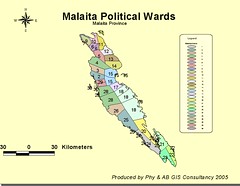 |
 |
| WHAT'S NEW |
- Central Malaita Student Association(CMSA) would include Malaita Outter Islands
student as of next year.That means if you are from Malaita Outter Islands, you are part of CMSA.
- This site is currently undergoing some major changes.
|
| NOTICES |
| I WILL BE AWAY FOR TWO WEEKS IN THE SOLOMONS. WHILE I AM AWAY, N.G, COULD YOU KEEP OUR SITE UPDATED WITH ALL THE LATEST NEWS FROM HOME. I WILL BE BACK ONLINE IN AUGUST - PM |
QUOTE OF THE DAY |
| "Youth is a blunder; Manhood is a struggle; Old age is a regret - (BENJAMIN DISRAELI (1804 - 1881)" |
 BENJAMIN DISRAELI (1804-1881) BENJAMIN DISRAELI (1804-1881) |
| CHAT BOARD |
| KU'AL HU'AN ALA'ANGA!!!.
|
| CLIPS OF THE TSUNAMI IN SOLOMON ISLANDS |
|
|
| HISTORICAL CLIPS OF THE SOLOMONS |
|
| OTHER SOLOMON ISLANDS CLIPS: MUSIC, SPORTS ETC |
|
| POSTERS |
|
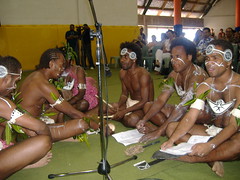
Vakavuku, SISA custom dancers administrator
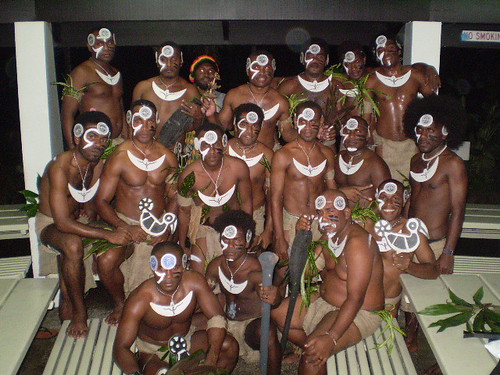
Central Malaita Dancing Group at the Tsunami Appeal at Laucala Campus administrator
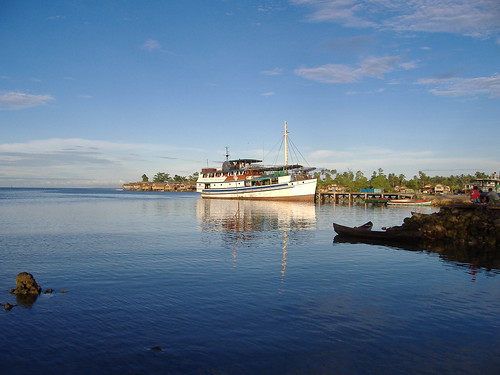
AUKI WHARF administrator
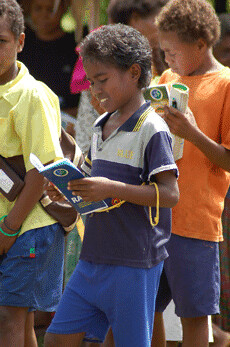
REACHING OUT....A young boy from Kilusakwalo reading through a pamphlet about RAMSIâs work in Solomon Islands which was
distributed during a meeting by a RAMSI Outreach Team to the village yesterday. PICTURE: MOFFAT MAMU administrator

A Malaita Ramo - JanesOceania.com

A house found it self submerged as a result of the Tsunami - Lifhaus.com">
 Jacinta Moli from Central Malaita representing Solomon Islands in Powerlifting during the Commonwealth Games Jacinta Moli from Central Malaita representing Solomon Islands in Powerlifting during the Commonwealth Games
administrator

Tennis Queen Irine George from Central Malaita" ">
|
|
| Friday, August 24, 2007 |
|
 SPG UPDATE: COOL RUNNINGS IN WARM WATERS SPG UPDATE: COOL RUNNINGS IN WARM WATERSBy Jeremy Miller In 2006, an estimated 200,000 strong St Kilda beach crowd witnessed a new entrant in international triathlon.
“My run leg was very slow. I was coming last because I was so tired, so the people in the crowd shouted out my name, ‘Will-ey, Will-ey, Will-ey!’ So I started to get faster. I was very proud of myself. It was the biggest race of my life.”
Racing in an event like the Melbourne 2006 Commonwealth Games Triathlon is a big moment for any triathlete. For Willy Bosa, a 21 year old Solomon Islander, it held even more significance. Twelve months before being cheered on, he and his two team mates had never even heard of triathlon, and his country was just beginning to emerge from a civil war where guns ruled the street.
Willy is part of a small but growing number of Solomon Islanders taking up triathlon. They are embracing a new sport that offers not just the excitement of international competition, but an opportunity to lift both their confidence and themselves out of a cycle of poverty that permeates this troubled tropical paradise of coconut palm fringed beaches.
The story of the three man team from Solomon Islands competing in the 2006 Melbourne Commonwealth Games captured the hearts of Australians and the rest of the Commonwealth nations. The team were quickly dubbed “Cool Runnings”, likening their difficult journey to reach the Commonwealth Games to a film about a West Indian bobsled team training for the Winter Olympics.
For Willy, Stanley Ofasisili and Marcus Forau, it was the first time they had ever swum in a pool, run with proper running shoes or ridden on fancy hi-tech bikes, and the first time they had competed against professional elite athletes including current or past world champions.
Remembering the first time he entered a swimming pool in Australia Willy says, “it was very hard to swim straight, to follow the black line on the bottom of the pool. We had only ever swum in the ocean”.
Triathlon was introduced to the Solomon Islands in early 2005 by two Australians, Ross Andrewartha working with an AusAID forestry project and Garry McKenzie working as a civilian advisor with the Australian-led Regional Assistance Mission to Solomon Islands (RAMSI) which arrived to restore law and order in 2003.
Ross has learnt the local pigin language and has an obvious gift with his new young protégées, making them feel at ease with the new sport, and keeping them motivated to train hard.
“We never intended it to be more than teaching people how to swim in our spare time, but the guys loved it and we both wanted to put something back into the sport”, said Ross.
“Fitness is not a problem and the Solomon Islanders are fantastic in the water. They are great divers because they hunt for fish – and in some cases even crocodiles. It’s more about getting them to go horizontal!” he says with a laugh.
“They’ve just never been taught and only know how to dog paddle. So we have to start with blowing bubbles”, he said. When they first began swimming lessons, they had six people, then it was 24 and now they have a committed squad of nearly 30 people training three mornings per week at Kakabona beach, the world’s deepest swimming pool (minus the black lines).
Stanley Ofasissili, another member of the 2006 Commonwealth Games team was amazed when he first read about triathlon in the newspaper. “I couldn’t believe that after the swimming leg, which I thought was hard, that you had to ride, and then run. That’s hard!” he said.
The common theme for Solomon Islands triathletes and coaches alike is that the sport offers an opportunity to break the cycle of high youth unemployment and social dislocation in Honiara, where young people are locked out of any opportunity to move ahead in the ramshackle capital of Solomon Islands.
The youth population has exploded with 70% of the population aged 29 years or less. During the recent conflict, government and the education system collapsed, and many young adults simply missed out on four years of schooling. In Honiara alone, over half the population is in paid work. The result is too many people with too much testosterone, too much spare time, and little to look forward to. Marijuana and Kwaso (the local illegal ‘moonshine’) fill the long hours of the day and into the night.
Maxon ‘The Crocodile-Man’ Ala (famous for his part time job of catching 2-3 metre long crocodiles as a way to earn a little extra income) was an early convert to the sport in 2005 and is now Vice-President of Triathlon Solomon Islands.
“Before triathlon, I used to sleep late. Now I wake up and have energy. I think in the future all Solomon Islanders must compete in triathlons. That is my vision” he says with a twinkle in his eye. 
“So many people here have a criminal background and spend all their time drinking Kwaso and smoking marijuana. We need to bring these people into triathlon.” he said.
Diana Buaga, 23, comes from a family of 13 and is the first female recruit to triathlon. In a country where female participation in sport is just another obstacle Solomon Islanders must overcome, Diana has become a dedicated athlete. Diana is planning to be the first female triathlete to represent the Solomon Islands at Samoa for the 2007 South Pacific Games.
“I like swimming and riding – but not running”, she laughs. “And competing with the boys is really hard!”
While enthusiasm is in large supply, wide-spread poverty means that resources for the sport are not.
One morning during a major race one of the boys fainted. When Patricia, Ross’s partner asked him what was wrong he said he hadn’t eaten for two days because his family didn’t have any food in the house.
“The poverty here is very real”, Ross said.
Few of the team have their own set of goggles let alone the latest in carbon-fibre bike technology, air cushion shoes or even swim suits.
“It’s laughable really, some of them are training with heavy mountain-bikes with front shocks and knobbly tyres that stick to the road like glue. Others have old racers that remind me of the first bike I ever had”, Ross said.
Ross devotes much of his spare time as the President of Triathlon Solomon Islands team searching for funds to better equip the team and send them overseas to compete.
Through various connections he has been able to source donated equipment such as kick boards and goggles. These resulted from a fund-raising effort by Caulfield Grammar School in Melbourne after Penny Barrington from the school read a Melbourne Herald Sun on the Commonwealth Games ‘Cool Runnings’ team. Ross has also recently secured AUD$ 16,000 sponsorship deal from ANZ Solomon Islands to cover the costs of taking a four person team to compete at the 2007 South Pacific Games in Samoa.
“Getting them to international events is always difficult because they would never be able to afford the expenses themselves. That’s why sponsorships like ANZ make all the difference”, Ross said.
“In 2006, by the time we got the team to Melbourne after three months of training on the Gold Coast, we had $93 in the bank”. Luckily, some friends and generous companies like The Hatlar Group (Melbourne-based environmental consultancy) and URS got together and raised the money needed to get them to the opening ceremony.
“Now we want to focus on raising funds to take a team to Noosa Triathlon in November for those that don’t get to make the four spots for the South Pacific Games.
The ITU is taking a keen interest in the Oceania Region and sent Kathy Sheldrake from New Zealand last year to investigate the sport’s development opportunities within the Solomon Islands. As a result, two triathletes will attend a regional coaching course in Fiji in June, as well as participate in the Fiji National Championships.
Brian Hinton and Libby Burrell also ITU delegates are actively involved in assisting at a strategic level and are fully supportive of the efforts to expand the sport across the region.
Stephen Farrell, the Triathlon New Zealand High Performance Director, at the time of writing, is busily organising equipment donations from New Zealand which will mean the squad can move to a new level in preparation for the major 2007 events.
Ross says it has all been worth it.
“Seeing the personal growth in these young Solomon Islanders is incredible. It’s probably the best thing I’ll ever do. Taking these boys from learning to swim at Kakabona beach to walking into the MCG side by side for the opening ceremony is something I’ll never forget.” “Sport is only part of the change in these young Solomon Islanders”, Ross said. “It’s also about the personal growth, increased confidence and self-belief that I’ve seen”.
He cites Willy, a shy 19 year old when he first joined the squad.
“Since coming back from the Commonwealth Games he’s got his first job, a driver’s licence, a mobile phone and he calls me up at 5 AM to find out about training. You can’t put a value on that type of growth – and it’s happened in just two years.
Willy and Maxon, along with five of their team mates have found jobs through their association with triathlon, and have learned that sport is a great way to achieve things in life.
If you’d like to find out more about Triathlon Solomon Islands or would be interested in supporting the team with donations, contact Ross Andrewartha: andrewartha@solomon.com.sb |
posted by administrator @ 6:06 PM  |
|
|
|
|
NAVIGATIONAL LINKS |
| SCHOLARSHIP SITES AND EMPLOYMENT OPPORTUNITIES |
|
|
| INTERNATIONAL NEWS |
|
|
| LOCAL AND REGIONAL NEWS |
|
|
| OTHER SOLOMON LINKS |
|
|
| SPORTS LINKS |
|
|
| TOK STORI - ALA'ANGA DISCUSSION FORUM |
|
|
| PHOTOS |
|
|
| Regional Bodies |
|
|
| Research Papers and Articles |
|
|
CENTRAL MALAITA STUDENTS |
- 1. ABA, Alan
- 2. ADIFAKA, Margaret
- 3. AFIA, Kabini
- 4. ANII, Dennis
- 5. ANII, Loretta
- 6. ATOA, Betty
- 7. BARE, Gavin
- 8. BATALOFO, Margaret
- 9. BIBIASI, Joseph
- 10. BISAFO, Samson
- 11. BUGA, Benjamin
- 12. BUKA, Glen
- 13. BUNABO, Steven
- 14. ENOCH, Derick
- 15. ETUA, Dennis
- 16. FARADATOLO, David
- 17. FUGUI, Dudley
- 18. GALASAU, Noel
- 19. GERENIU, Collin
- 20. GULIOA, George
- 21. IKA, Silas Phillip
- 22. HUNUEHU, Helen
- 23. IDU, Francis
- 24. KAO, George
- 25. KETEI, Allan
- 26. KINIOU, Aaron
- 27. KWALU, Jerry
- 28. KWATOO, Tony
- 29. LUITOLO, Steven
- 30. MAEKWARE,Tom
- 31. MANATE'E, Wesley
- 32. MANUSALO, Nelly
- 33. MISIBINI, ALick
- 34. MISIBINI, William
- 35. MISITE'E, John
- 36. OTTO, Steven Jude
- 37. RAU, Ishmael
- 38. SALEMANU, Martin
- 39. SIARANI, ANDY
- 40. SUABULU, Gray
- 41. TEGEROBO, Moses
- 42. TOITO'ONA, Joan
- 43. TORILOFA, Frank
- 44. UGULU, Primo
- 45. VAJAH, Jimmy
USP STAFFS AND FRIENDS
- 1. MAE, Paul
- 2. BUTAFA, Emanuel
|
| CURRENCY CONVERTOR |
|
|
| ARCHIVES |
|
|
| Archives |
| GREATEST HITS FROM SOLOMONS ISLANDS (1960s-1980s) |

|


|
|
